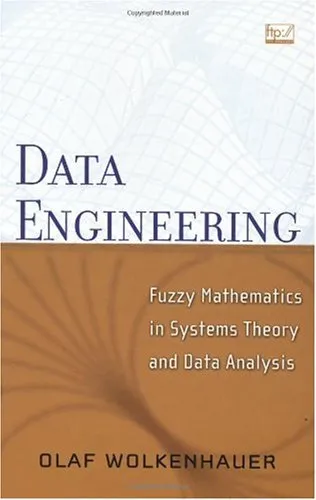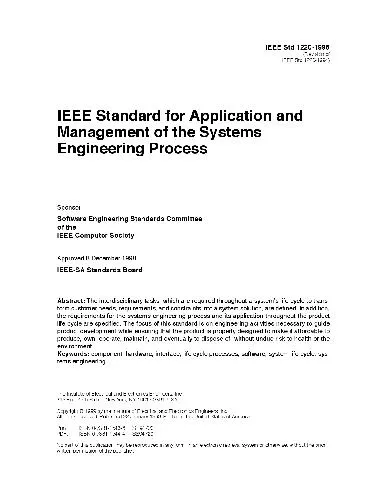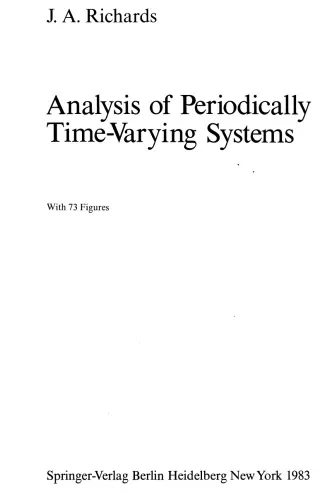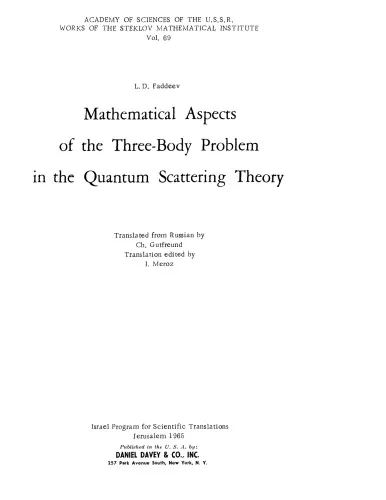Data Engineering: Fuzzy Mathematics in Systems Theory and Data Analysis
4.3
Reviews from our users

You Can Ask your questions from this book's AI after Login
Each download or ask from book AI costs 2 points. To earn more free points, please visit the Points Guide Page and complete some valuable actions.Related Refrences:
Welcome to the comprehensive guide that delves into the provocative and intricate world of fuzzy mathematics as applied within the realms of systems theory and data analysis.
Detailed Summary
The book Data Engineering: Fuzzy Mathematics in Systems Theory and Data Analysis serves as a seminal piece for those intrigued by the nuances and subtleties of data interpretation through a mathematical lens. At its core, this book endeavors to marry seemingly disparate concepts: the rigorous structure of mathematics with the graceful fluidity of data analysis under conditions of uncertainty and ambiguity.
Fuzzy mathematics, a subset of mathematics that deals with reasoning that is approximate rather than fixed and exact, forms the foundation of this discourse. This text outlines the evolution of fuzzy logic from its theoretical inception to its practical applications in data systems today.
The book is partitioned into distinct sections, beginning with a historical perspective, detailing the advent and motivation of fuzzy set theory. Progressing further, it applies fuzzy logic to varying real-world data systems, underscoring its immense potential for making sense of vagueness inherent in complex datasets. Each chapter builds upon concepts neatly, linking theory with practical applications, especially in sectors prone to uncertainty such as finance, biology, and engineering.
Key Takeaways
- Understand the basics and evolution of fuzzy mathematics and how it contrasts with classical data analysis methodologies.
- Explore the theoretical underpinnings of fuzzy systems and how they can be applied to model uncertainty and imprecision in data.
- Gain insight into the powerful applications of fuzzy logic across various domains, enhancing decision-making processes where ambiguity occurs.
- Grasp the potential of incorporating fuzzy logic into existing data systems for richer, more nuanced analysis outcomes.
Famous Quotes from the Book
"Fuzzy mathematics bridges the chasm between certainty and the ambiguity of reality, thrusting clarity upon what was once deemed nebulous."
"In an era where data floods drown the senses, fuzzy logic emerges as the lifeboat—guiding the wise to shores of understanding."
Why this Book Matters
This book holds a crucial place in educational and professional settings, reinforcing the importance of flexible thinking in data engineering. As societies advance technologically, the need grows for systems and frameworks that can not only handle, but thrive, amidst the ambiguity and uncertainty that characterize human knowledge and experience.
By highlighting the potential of fuzzy mathematics, the text empowers data scientists, engineers, and analysts with tools to interpret data beyond rigid binary parameters. This flexibility is not only critical for making informed decisions but also for innovating in areas previously thought too murky to navigate with precision.
Moreover, the integration of systems theory introduces readers to the interconnectedness of various data processes, providing a holistic understanding of how fuzzy logic can optimize system performance. Consequently, the book is an indispensable resource for practitioners and scholars who wish to stay at the forefront of data engineering advancements.
Free Direct Download
You Can Download this book after Login
Accessing books through legal platforms and public libraries not only supports the rights of authors and publishers but also contributes to the sustainability of reading culture. Before downloading, please take a moment to consider these options.
Find this book on other platforms:
WorldCat helps you find books in libraries worldwide.
See ratings, reviews, and discussions on Goodreads.
Find and buy rare or used books on AbeBooks.
1448
بازدید4.3
امتیاز0
نظر98%
رضایتReviews:
4.3
Based on 0 users review
Questions & Answers
Ask questions about this book or help others by answering
No questions yet. Be the first to ask!














